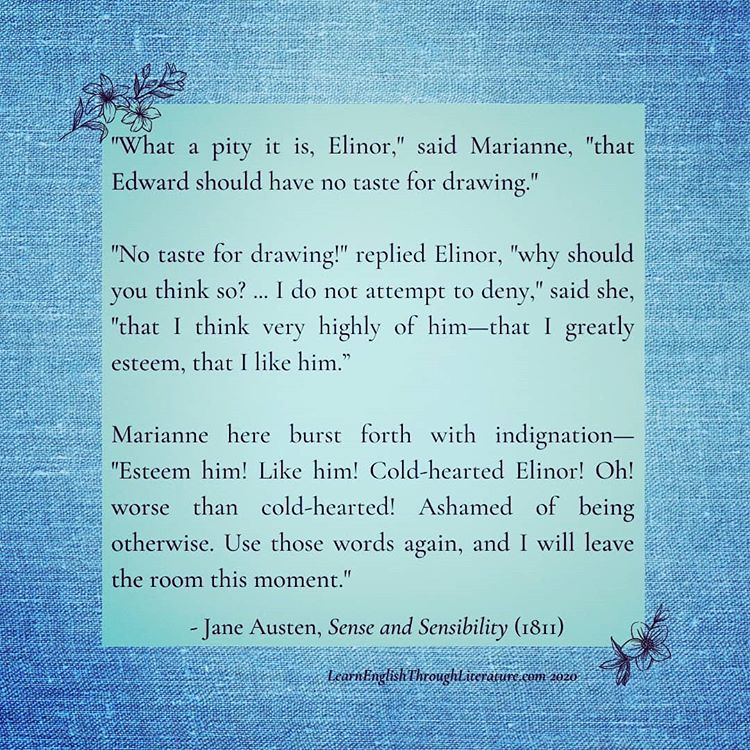In the previous post, we began looking at a passage by Jane Austen (continued below) to consider how she created distinctive voices for different characters:
📙 ‘Marianne was astonished to find how much the imagination of her mother and herself had outstripped the truth.
“And you really are not engaged to him!” said she. “Yet it certainly soon will happen. But two advantages will proceed from this delay. I shall not lose you so soon, and Edward will have greater opportunity of improving that natural taste for your favourite pursuit … Oh! if he should be so far stimulated by your genius as to learn to draw himself, how delightful it would be!”
– Jane Austen, Sense and Sensibility (1811)
✍️ Austen creates distinctive voices or styles here in two ways: 1) by TONE and 2) by PUNCTUATION.
🌸 Notice how Marianne (the younger sister) uses words that are as LIVELY and ANIMATED as herself: ‘cold-heated’[cold-hearted], ‘ashamed’, ‘stimulated’, ‘genius’, ‘delightful’.
🌸 She also uses STRONGER and more DECISIVE words than Elinor: ‘no taste’, ‘this moment’, ‘it certainly soon will happen’.
🌸 Marianne’s sentences often end in exclamation marks, which show how excited and spontaneous she is!
💮 By contrast, Elinor’s expressions are CALMER, THOUGHTFUL and more DELIBERATE. She uses phrases such as ‘in so quiet a way’, ‘wishing’ (instead of ‘wanting’, which is stronger) and ‘points to be considered’. Her phrases are kept short by many commas (,) and dashes (-), as if to show that Elinor is pausing, hesitating, thinking about everything in a serious way.
These give us a picture of the kind of person Elinor is. In fact, Austen is FAMOUS for her ability to describe her characters’ true personalities through the language style that they use.
I hope today’s reflection on voices, styles and personality in Austen’s writing will encourage you too as you develop your own!




